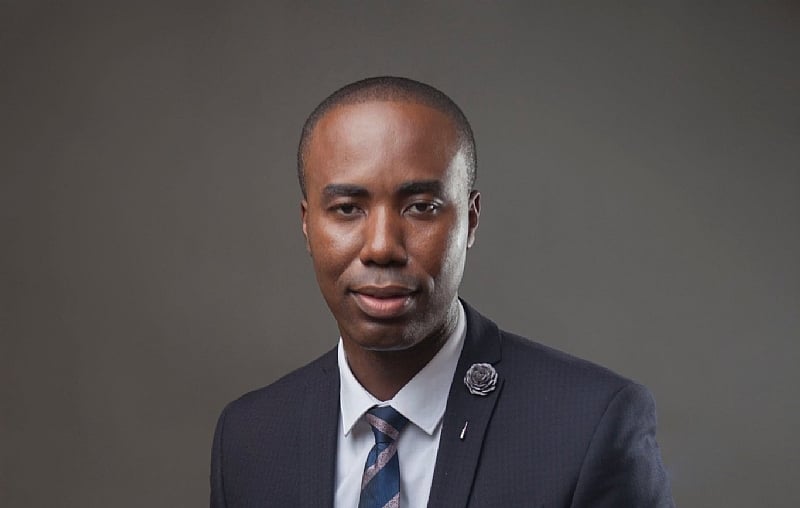This case involves allegations of significant financial misconduct against Kwabena Adu Boahene, the former Director-General of Ghana’s National Signals Bureau, his wife, Angela Adjei Boateng, and two other individuals: Mildred Donkor, a former banker, and a corporate entity, Advantage Solutions Limited. They stand accused of orchestrating a complex scheme to misappropriate and launder GH¢49.1 million (approximately US$8 million at the time) of public funds earmarked for a national cybersecurity project. Eleven charges have been leveled against them, ranging from stealing and conspiracy to defraud to money laundering and causing financial loss to the state. The gravity of the accusations reflects the alleged abuse of public trust and the substantial sum of money involved. All four defendants have pleaded not guilty to the charges.
The alleged scheme began in early 2020 when Adu-Boahene, leveraging his position as Director of the Bureau of National Communications (BNC), purportedly entered into a contract with an Israeli technology company, ISC Holdings Limited, for a cybersecurity defense system. This contract, valuing the system at US$7 million, served as the pretext for a series of fraudulent transactions. Adu-Boahene is accused of facilitating the transfer of GH¢49.1 million from the BNC’s official bank account, claiming it was payment for the system. However, investigations revealed that the funds were diverted into an account belonging to a privately-owned company, BNC Communications Bureau Limited, deceptively named to mimic the legitimate government agency. Adu-Boahene and his wife, Angela Adjei Boateng, are alleged to be the secret owners of this private entity.
The misappropriated funds were moved in three tranches through cheques drawn from the BNC’s public account and deposited into the private company’s account. Despite Adu-Boahene’s claim of wiring US$1.75 million to ISC Holdings as part-payment, no such transfer was found, and no cybersecurity system was ever delivered to the Ghanaian government. The prosecution alleges that the money was further funneled through a network of companies under the umbrella of Advantage Solutions Limited, the fourth defendant in the case. These funds were allegedly used to finance the opulent lifestyles of the accused, including the purchase of luxury vehicles and properties in Accra, Kumasi, and London, as well as investments in various businesses.
The prosecution’s case hinges on establishing a clear link between Adu-Boahene’s actions as a public official and the fraudulent transfer of funds. The use of a similarly named private company, coupled with the lack of any evidence of the cybersecurity system’s purchase or delivery, strongly suggests a deliberate attempt to deceive and conceal the misappropriation. The alleged involvement of Angela Adjei Boateng, Mildred Donkor, and Advantage Solutions Limited further complicates the case, pointing to a broader conspiracy to launder the stolen funds and obscure their origins. The prosecution will need to demonstrate the roles played by each defendant in the scheme, including how the money flowed through various accounts and companies.
Angela Adjei Boateng and Mildred Donkor have both denied any wrongdoing. Boateng, a director and shareholder of the private company that received the diverted funds, is accused of playing a key role in the company’s formation and the movement of the stolen money. Donkor, identified as the couple’s former bank relationship officer, allegedly facilitated the day-to-day management of the funds and companies involved in the money laundering scheme. The prosecution contends that both women actively participated in the mishandling and concealment of the misappropriated funds. Their defense will likely focus on challenging the prosecution’s evidence and arguing that their involvement was either unwitting or purely professional.
This case underscores the potential vulnerability of public funds to corruption and highlights the importance of robust oversight mechanisms. The alleged exploitation of Adu-Boahene’s position of authority to orchestrate this scheme points to a potential failure of internal controls within the BNC and the broader government financial system. The prosecution’s efforts to unravel the complex web of transactions and company structures demonstrate the challenges involved in pursuing financial crimes. The outcome of this case will have significant implications, not only for the accused individuals but also for Ghana’s efforts to combat corruption and strengthen public trust. It will also send a message about the consequences of abusing public office for personal gain.
The court proceedings will be crucial in determining the veracity of the allegations and the culpability of each defendant. The prosecution will need to present compelling evidence, including financial records, witness testimonies, and potentially digital forensic evidence, to prove the charges beyond a reasonable doubt. The defense, in turn, will seek to challenge the prosecution’s case, raising questions about the integrity of the investigation and the interpretation of the evidence. The court’s eventual ruling will have substantial implications for the defendants and will serve as a significant precedent in future cases involving financial misconduct and corruption within the public sector. The public will be keenly observing the proceedings as the case unfolds.














